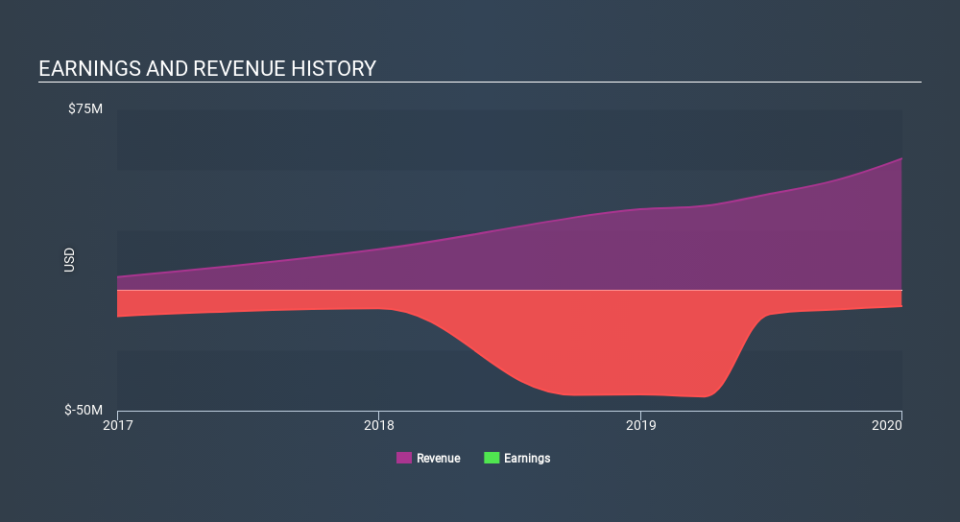Imagine Owning UP Fintech Holding (NASDAQ:TIGR) And Trying To Stomach The 79% Share Price Drop

Even the best investor on earth makes unsuccessful investments. But it's not unreasonable to try to avoid truly shocking capital losses. It must have been painful to be a UP Fintech Holding Limited (NASDAQ:TIGR) shareholder over the last year, since the stock price plummeted 79% in that time. That'd be enough to make even the strongest stomachs churn. UP Fintech Holding hasn't been listed for long, so although we're wary of recent listings that perform poorly, it may still prove itself with time. Shareholders have had an even rougher run lately, with the share price down 26% in the last 90 days. But this could be related to the weak market, which is down 14% in the same period.
See our latest analysis for UP Fintech Holding
UP Fintech Holding isn't currently profitable, so most analysts would look to revenue growth to get an idea of how fast the underlying business is growing. Generally speaking, companies without profits are expected to grow revenue every year, and at a good clip. Some companies are willing to postpone profitability to grow revenue faster, but in that case one does expect good top-line growth.
UP Fintech Holding grew its revenue by 63% over the last year. That's a strong result which is better than most other loss making companies. So on the face of it we're really surprised to see the share price down 79% over twelve months. There's clearly something unusual going on here such as an acquisition that hasn't delivered expected profits. We'd recommend taking a very close look at the stock (and any available forecasts), before considering a purchase, because the share price is not correlated with the revenue growth, that's for sure. Of course, markets do over-react so share price drop may be too harsh.
You can see how earnings and revenue have changed over time in the image below (click on the chart to see the exact values).
Take a more thorough look at UP Fintech Holding's financial health with this free report on its balance sheet.
A Different Perspective
We doubt UP Fintech Holding shareholders are happy with the loss of 79% over twelve months. That falls short of the market, which lost 3.7%. That's disappointing, but it's worth keeping in mind that the market-wide selling wouldn't have helped. With the stock down 26% over the last three months, the market doesn't seem to believe that the company has solved all its problems. Basically, most investors should be wary of buying into a poor-performing stock, unless the business itself has clearly improved. It's always interesting to track share price performance over the longer term. But to understand UP Fintech Holding better, we need to consider many other factors. To that end, you should learn about the 3 warning signs we've spotted with UP Fintech Holding (including 1 which is is a bit concerning) .
But note: UP Fintech Holding may not be the best stock to buy. So take a peek at this free list of interesting companies with past earnings growth (and further growth forecast).
Please note, the market returns quoted in this article reflect the market weighted average returns of stocks that currently trade on US exchanges.
If you spot an error that warrants correction, please contact the editor at editorial-team@simplywallst.com. This article by Simply Wall St is general in nature. It does not constitute a recommendation to buy or sell any stock, and does not take account of your objectives, or your financial situation. Simply Wall St has no position in the stocks mentioned.
We aim to bring you long-term focused research analysis driven by fundamental data. Note that our analysis may not factor in the latest price-sensitive company announcements or qualitative material. Thank you for reading.

 Yahoo Finance
Yahoo Finance 
